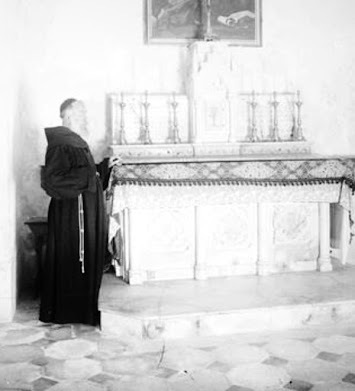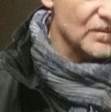Fabrizio Ulivieri's Blog, page 38
July 26, 2024
I cooperatori del male
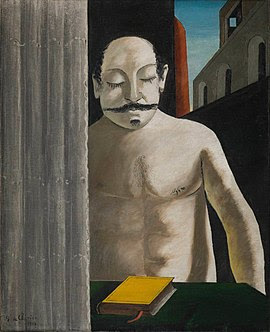
Come chiamar chi opera i mali?
Come chiamar chi inganna le sue genti?
Chi mira certo a far di lor naufragio?
Chi mira a portar ovunque contagio?
Il vero marchio è Dio rinnegare
- anime solo tese a infettare.
La distruzione umana amano, la follia.
Ripudiano il senso della vita e l'io,
odiano la carne e lo spirito di Dio.
Anime che negano la materia,
e tendono a altezza incorporea.
Cercano la sodomia goduta e sola.
Demoni e cancro della storia,
vanno senza speranza di vittoria.
Invocan nell'abisso la inutil gloria,
del morir fanno propria possessione e
di quel pensiero vera ossessione.
E sanno bene non v'è la salvezza
- per loro l'uomo vive di bassezza.
July 23, 2024
Commenting on a passage from the Kena Upanishad
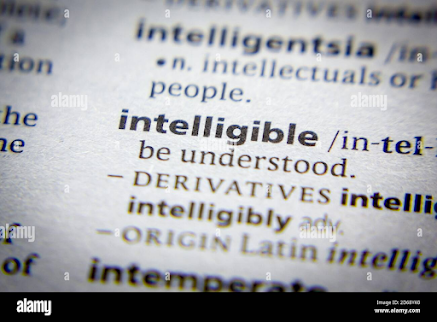
श्रोत्रस्य श्रोत्रं मनसो मनो यद्वाचो ह वाचं स उ प्राणस्य प्राणश्चक्षुषश्चक्षुः ।"What is the Ear of the ear, the Mind of the mind, the Speech of speech, that is the Breath of breath, and the Eye of the eye."(Kena Upanishad 1,2)
We think that in this passage there is a reference: the ear refers to the capacity to be Ear, the mind to the capacity to be Mind, the tongue to the capacity to be Language, the breath to the capacity to be Breath, and the eye to the capacity to be Eye. The body has the capacity to be a Body that finds its true nature in the Spirit. Everything refers to a pre-understanding, that is, to what is only intelligible and immaterial.
[I] See https://princasvilniuje.blogspot.com/2024/07/flesh-and-spirit-living-between-two.html
July 21, 2024
Silvia, vorrei che tu, Claudia ed io
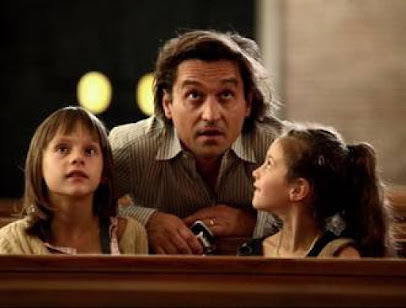
Silvia, vorrei che tu, Claudia ed io
fossimo presi per un incantamento
in un giorno di sole in forte luglio senza vento fermati in quel tempo.
Il voler nostro sia di tale giornocosì fermo e senza impedimentoe quel desio ci stia sempre attornoe eterno ne viva quell'intento.
Così che il tempo e fortuna appena
rimanesse a noi del tutto aliena
anzi, vivendo sempre in un intento,
mai crescesse contrario sentimento.
E uniti come ostia nell'amore
esenti da ogni forma di dolore.
Silvia, vorrei che tu, Claudia e io

Silvia, vorrei che tu, Claudia ed io
fossimo presi per un incantamento
in un giorno di sole in forte luglio senza vento fermati in quel tempo.
Il voler nostro sia di tale giornocosì fermo e senza impedimentoe quel desio ci stia sempre attornoe eterno ne viva quell'intento.
Così che il tempo e fortuna appena
rimanesse a noi del tutto aliena
anzi, vivendo sempre in un intento,
mai crescesse contrario sentimento.
E uniti come ostia nell'amore
esenti da ogni forma di dolore.
July 19, 2024
About my poem "All'Italia"

«Nel mezzo del cammin di nostra vitami ritrovai per una selva oscura,ché la diritta via era smarrita.»
I should start with this, but I have to steer towards a new direction and maybe rephrase.
«Al finir del cammin di nostra vitami ritrovai per un dolor oscuro,ché il peso portar era duro.»
That heavy weight consisted of two names: Silvia and Claudia. There was a third name, and it was: Italia.
These names generated within me an unbearable state of suffering.
I was living abroad, far from all three of them.
I saw the disaster, probably the final disaster, that Italy was going through.
Italians were being ethnically substituted, living in complete political subjugation, without a hint of rebellion. The best youth were leaving the country, the population was becoming old and diminishing.
The bewildering thing was that despite all this, they pretended to be happy, but they were unhappy and were transitioning into a high state of egotism.
Italian families were becoming more and more just a shelter for selfish individuals. Italian people were selfish and spoiled like children.
Too much wellness and richness, too much stupid television and bad press had degraded their condition.
My daughters, Silvia and Claudia, never called me, and never tried to communicate with me. They seemed completely disinterested in me.
In the end, I was able to capture this tripartite pain in a single poem. All’Italia:
Come posso non piangere se penso
quella Italia, cui Corelli cantava
Fellini dirigeva, Pasolini amava,
Visconti ne urtava, il senso.
Ripenso lei pingue e felice
L'Italia dei sogni che credeva
Che a tutti la vita lei scioglieva.
Come non piangere me infelice?
Io vado ora, io muoio, traditrice.
Che sarà di te Italia abietta
mai libera, tu serva e negletta
E ancella di un popolo morto e giudice.
Padrona doma, l'italo giovane
Ti lascia e non si duole, a lui bagascia
Di solo cibo e nulla vivi pascia
Ti fugge, passa i bordi tuoi lui cane.
Lascia una vita piatta di regole
meschina e che soffocano futile
la vergogna di popolo cieco, inutile
Che scompare felice nel suo sole.
Ancora là i due miei occhi vivono.
E amor inganna speme, ma non muore.
Ė libero dai vincoli e di sé è in sé
E un'altra speranza i nomi, ahimè,
Silvia, Claudia io dirò a voi nel cuore,
Di lontan parlerò al vostro amore,
Piano pronuncerò stessa passione,
La stessa che in vita m'era agone.
E allora potrò, dir piangendo:
Alma terra natia, la vita che mi desti ecco ti rendo.
I wrote this poem after watching videos of the tenor Corelli and Pasolini and remembering Visconti's cinema's great lessons. I began to miss the Italy of my youth, which was beautiful, rich, elegant, happy, safe, and full of hope. I reflected on the present (l'hinc et nunc). Now that I see her from afar, living outside Italy, I see that she has betrayed her own kind and is increasingly a slave to the powers that hold sway over her.
Her best youth have left her, abandoning her like stray dogs lost in the world. A cowardly, weak, slothful people remain in that land. But I still love her, just as I love my two eyes, which still live there: my two daughters, Silvia and Claudia.
Love falsifies hope, making it prefer falsehood over the painful truth. Today's Italy is another Italy, and my daughters, this is the truth, think more of themselves than of me. But I will always love them. Even after death, from afar, I will speak to them with the same passion with which I thought about them in life: a great suffering, my continuous agony.
And finally, through their thoughts and hearts, I will speak. I will return to my land. In that guise, I will return to her in tears of love, to my beloved native land.
July 15, 2024
All'Italia
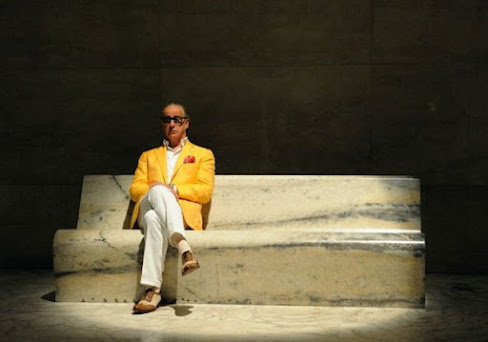
A Silvia e Claudia nel mio cuore per sempre
Come posso non piangere se penso
quella Italia, cui Corelli cantava
Fellini dirigeva, Pasolini amava,
Visconti ne urtava, il senso.
Ripenso lei pingue e felice
L'Italia dei sogni che credeva
Che a tutti la vita lei scioglieva.
Come non piangere me infelice?
Io vado ora, io muoio, traditrice.
Che sarà di te Italia abietta
mai libera, tu serva e negletta
E ancella di un popolo morto e giudice.
Padrona doma, l'italo giovane
Ti lascia e non si duole, a lui bagascia
Di solo cibo e nulla vivi pascia
Ti fugge, passa i bordi tuoi lui cane.
Lascia una vita piatta di regole
meschina e che soffocano futile
la vergogna di popolo cieco, inutile
Che scompare felice nel suo sole.
Ancora là i due miei occhi vivono.
E amor inganna speme, ma non muore.Ė libero dai vincoli e di sé è in sé
E un'altra speranza i nomi, ahimè,
Silvia, Claudia io dirò a voi nel cuore,
Di lontan parlerò al vostro amore,
Piano pronuncerò stessa passione,
La stessa che in vita m'era agone.
E allora potrò, dir piangendo:
Alma terra natia, la vita che mi desti ecco ti rendo.
July 12, 2024
Viviendo en la intersección de dos universos, donde uno se funde con el otro
केनेषितं पतति प्रेषितं मनः केन प्राणः प्रथमः प्रैति युक्तः
केनेषितां वाचमिमां वदन्ति"¿Movido por qué vuela la mente dirigida?¿Unido por qué sale primero el aliento vital?
¿Por medio de qué se dirige este discurso que hablan?(Kena Upanishad 1:1)
Más allá del hombre hay un qué que, si bien no pertenece al hombre, le pertenece. El hombre es el medio a través del cual "lo que no tiene naturaleza de vida" se convierte en parte de la vida. Lo inmaterial entra en lo material por estas puertas: mente, aliento y palabra.
Sin embargo, queda la pregunta sin resolver: केन, kena, '¿por qué?' ¿De qué se originan la mente, la respiración y la palabra? Estos elementos trascienden al hombre porque se originan más allá de él.
Pero ese केन, kena, necesita la carne, los huesos y la palabra de la humanidad real para encontrar expresión en el mundo. Ya san Agustín había hecho una distinción entre dos mundos diferentes (civitates): [...] civitates duas secundum Scripturas nostras merito appellare possemus. Una quippe est hominum secundum carnem, altera secundum Spiritum vivere in sui cuiusque generis pace volentium [...] dos ciudades, según el lenguaje de nuestras Escrituras. Una está formada por los que quieren vivir según la carne, la otra por los que quieren vivir según el espíritu (De Civitate Dei, XIV, 1).
Y como dijo Nietzsche desde un punto de vista completamente diferente: [...] die herrlichsten Farben aus niedrigen, ja verachteten Stoffen gewonnen sind [...] los colores más maravillosos se obtienen de materiales humildes, incluso despreciados, [...] (Menschliches, Allzumenschliches, Erstes Hauptstück)
La carne en sí misma, en su naturaleza, no es mala; incluso San Agustín lo admite: [...] quid sit secundum carnem vivere (quod profecto malum est, cum ipsa carnis natura non sit malum) [...] qué es vivir según la carne (que ciertamente es mala, aunque la naturaleza misma de la carne no es mala) [...] (De Civitate Dei, XIV, 2.2).
Por eso ese केन puede adherirse a la carne y ser lo que es y será."
Fleisch und Geist - Leben zwischen zwei Universen, wo eines in das andere übergeht.
केनेषितं पतति प्रेषितं मनः केन प्राणः प्रथमः प्रैति युक्तः
केनेषितां वाचमिमां वदन्ति
„Bewegt von was fliegt der gesandte Geist? Gespannt durch was geht der Lebenshauch zuerst aus? Durch was wird diese Rede ausgesendet, die sie sprechen
(Kena Upanishad 1,1)
Jenseits des Menschen gibt es ein „Was“, das, obwohl es nicht dem Menschen gehört, ihm dennoch gehört. Der Mensch ist das Medium, durch das „was nicht die Natur des Lebens hat“ Teil des Lebens wird. Das Immaterielle tritt durch diese Türen in das Materielle ein: Geist, Atem und Wort.
Die ungelöste Frage bleibt jedoch: केन, kena, „durch was?“ Wodurch entstehen Geist, Atem und Wort? Diese Elemente transzendieren den Menschen, weil sie jenseits von ihm entstehen.
Aber dieses केन, kena, braucht das Fleisch, die Knochen und das Wort der wahren Menschheit, um in der Welt Ausdruck zu finden. Schon der heilige Augustinus hatte zwischen zwei verschiedenen Welten (civitates) unterschieden: [...] civitates duas secundum Scripturas nostras merito appellare possemus. Una quippe est hominum secundum carnem, altera secundum spiritum vivere in sui cuiusque generis pace volentium [...] zwei Städte, gemäß der Sprache unserer Heiligen Schriften. Die eine besteht aus denen, die nach dem Fleisch leben wollen, die andere aus denen, die nach dem Geist leben wollen (De Civitate Dei, XIV, 1).
Das Fleisch an sich, seiner Natur nach, ist nicht böse; sogar der heilige Augustinus gibt es zu: [...] quid sit secundum carnem vivere (quod profecto malum est, cum ipsa carnis natura non sit malum) [...] was heißt es, nach dem Fleisch zu leben (was sicherlich böse ist, obwohl die Natur des Fleisches selbst nicht böse ist) [...] (De Civitate Dei, XIV, 2.2).
Deshalb kann dieses केन dem Fleisch anhaften und sein, was es ist und sein wird.
Flesh and Spirit - living between two universes, where one transitions into the other
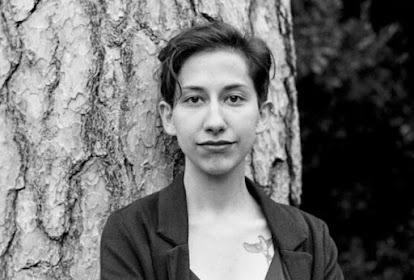
केनेषितं पतति प्रेषितं मनः केन प्राणः प्रथमः प्रैति युक्तः
केनेषितां वाचमिमां वदन्ति
"Moved by what flies the sent-out mind?
Yoked by what goes forth the life breath first?
By what is sent out this speech they speak?
(Kena Upanishad 1,1)
Beyond man, there is a 'what,' which although it does not belong to man, nevertheless belongs to him. Man is the medium through which 'what does not have the nature of life' becomes part of life. The immaterial enters the material through these doors: mind, breath, and word.
However, the unresolved question remains: केन, kena, 'by what?' By what do mind, breath, and word originate? These elements transcend man because they originate from beyond him.
But that केन, kena, needs the flesh, the bones, and the word of real humanity to find expression in the world. Already Saint Augustine had made a distinction between two different worlds (civitates): [...] civitates duas secundum Scripturas nostras merito appellare possemus. Una quippe est hominum secundum carnem, altera secundum spiritum vivere in sui cuiusque generis pace volentium [...] two cities, according to the language of our Scriptures. The one consists of those who wish to live after the flesh, the other of those who wish to live after the spirit (De Civitate Dei, XIV, 1).
The flesh in itself, in its nature, is not evil; even Saint Augustine admits it: [...] quid sit secundum carnem vivere (quod profecto malum est, cum ipsa carnis natura non sit malum) [...] what is it to live according to the flesh (which is certainly evil, although the very nature of the flesh is not evil) [...].(De Civitate Dei, XIV, 2.2).
This is why that केन can adhere to the flesh and be what it is and will be.
July 8, 2024
The imperfect speaker

Stay, you, imperfect speaker, stay fast! Tell me why this strange world, I pray, Has fallen gray upon my way, Name that yonder sphere I trust!
Say from whence I owe this news
This uncouth intelligence, these clues.
On this blasted earth I dwell in
You halt my right to light thin.
Say, you, imperfect speaker, do,
Stand you where I entrust you.
Speak forth, I pray thee, now,
I deemed your truths, you would endow.
In thee, I did hold faith, O fiend,
And yet you ate me unredeemed.
Thou hast betrayed me at last.
Leave me alone, depart, wretched ghast!

